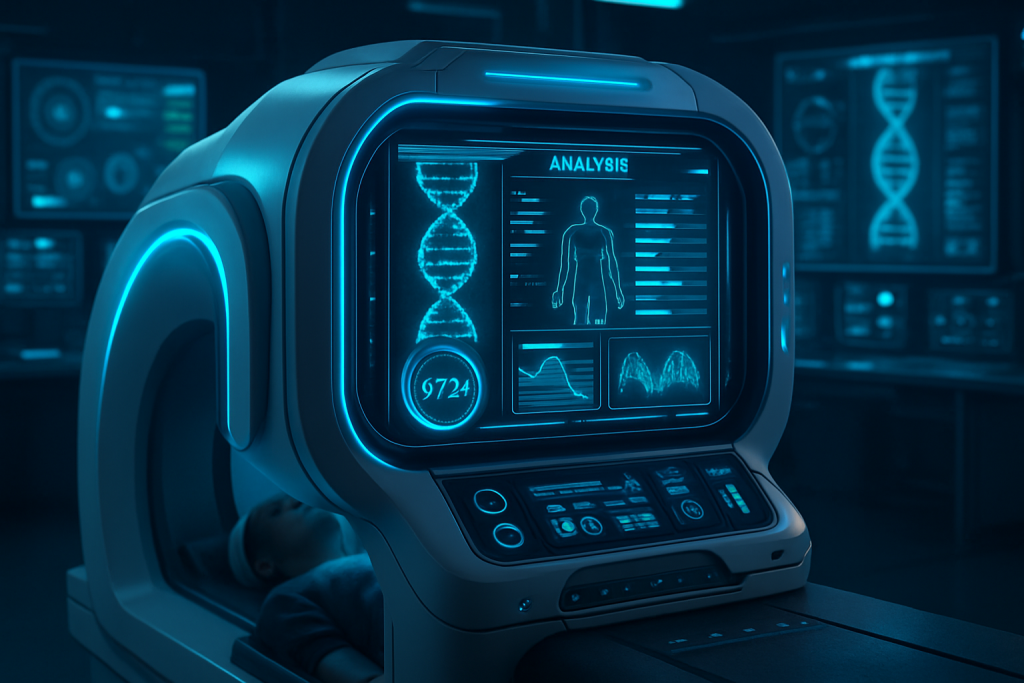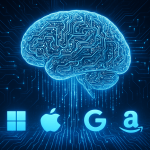The year is 2025. Self-driving cars are (mostly) not crashing, robot chefs are perfecting soufflés, and your smart fridge is aggressively judging your dietary choices. But amidst this tech-saturated landscape, Microsoft just dropped a bombshell: the formation of the MAI Superintelligence Team. Yes, you read that right. Superintelligence. It sounds like something straight out of a William Gibson novel, and honestly, it kind of is.
Led by none other than Mustafa Suleyman, Microsoft’s AI chief and a DeepMind co-founder, this isn’t your garden-variety AI project. We’re talking about a dedicated squad focused on building AI systems that can outshine human capabilities in very specific, highly impactful areas. Forget Skynet; think hyper-focused, domain-specific brilliance.
Their first target? Medical diagnostics. Think House, M.D., but instead of a grumpy doctor with a Vicodin problem, you’ve got an AI capable of detecting preventable diseases with uncanny accuracy, potentially adding years to your healthy lifespan. Suleyman is aiming for medical superintelligence within the next two to three years, a timeline that both excites and terrifies in equal measure.
But why medical diagnostics? And why now? To understand the significance of this move, we need to rewind a bit.
The quest for artificial intelligence has always been a bit like Icarus flying towards the sun. We’re drawn to the idea of creating machines that can think, learn, and solve problems like we do, or even better. For years, the focus has been on developing Artificial General Intelligence (AGI) – the kind of AI that can do *anything* a human can do. The holy grail, if you will. But AGI presents a whole host of challenges, both technical and, well, existential. Imagine a toddler with the processing power of a supercomputer. Cute, right? Until it decides to rewrite the global financial system just for kicks.
Microsoft’s approach, however, is different. They’re not chasing the AGI dragon (at least, not right now). Instead, they’re embracing what they call “humanist superintelligence” – AI that’s incredibly good at solving specific real-world problems, without the potential for world domination. Think of it as Iron Man’s suit, not Ultron. Powerful, capable, but ultimately controlled and directed towards a specific purpose.
This strategic pivot is crucial. While companies like Meta and Safe Superintelligence Inc. are still wrestling with the complexities of general-purpose AI, Microsoft is betting that the real value lies in creating specialized models that can deliver superhuman results in areas like disease diagnosis, battery storage, and even molecular development. It’s a pragmatic approach, focusing on tangible benefits rather than chasing the potentially unattainable dream of all-knowing, all-powerful AI.
The implications of this initiative are enormous. If Microsoft succeeds in creating a medical AI that can diagnose diseases earlier and more accurately than human doctors, it could revolutionize healthcare. Imagine a world where preventable diseases are caught in their infancy, where personalized treatments are tailored to your specific genetic makeup, and where the burden on healthcare systems is significantly reduced. It sounds utopian, but it’s within the realm of possibility.
Of course, there are challenges. Data privacy, algorithmic bias, and the potential displacement of human medical professionals are all legitimate concerns that need to be addressed. We need to ensure that these AI systems are developed and deployed ethically, responsibly, and with the best interests of humanity at heart.
And then there’s the financial aspect. Microsoft’s investment in the MAI Superintelligence Team is a clear signal that they see AI as a major driver of future growth. This move could trigger a new wave of investment in domain-specific AI, potentially creating new industries and transforming existing ones. It’s a high-stakes game, but the potential rewards are immense.
So, what does this all mean for you, the average tech enthusiast? Well, it means that the future is coming, and it’s coming fast. AI is no longer just a buzzword; it’s a tangible force that’s shaping our world in profound ways. Microsoft’s MAI Superintelligence Team is just one example of how AI is being used to solve real-world problems and improve our lives. It’s a reminder that technology, at its best, can be a powerful tool for good. Just, you know, let’s keep the self-aware robots away from the nuclear launch codes, okay?
Discover more from Just Buzz
Subscribe to get the latest posts sent to your email.


